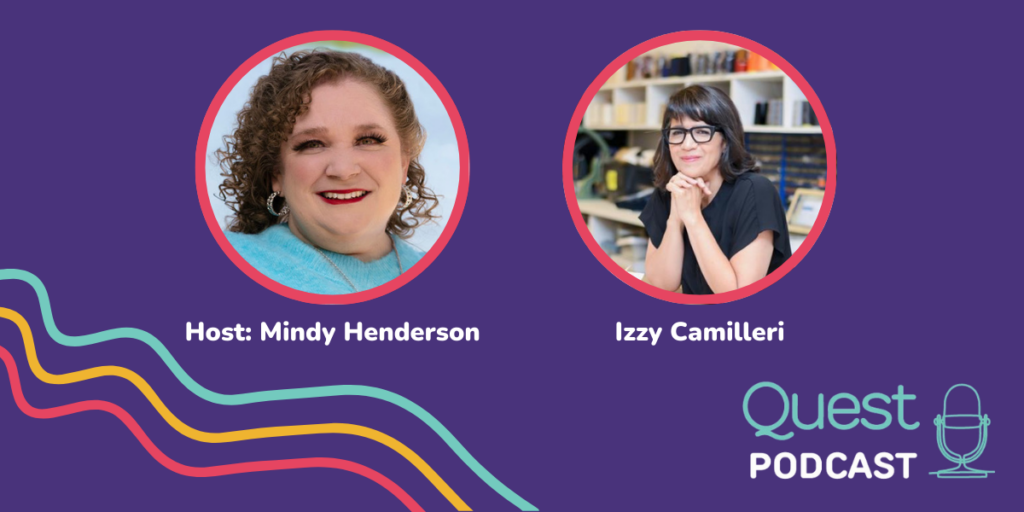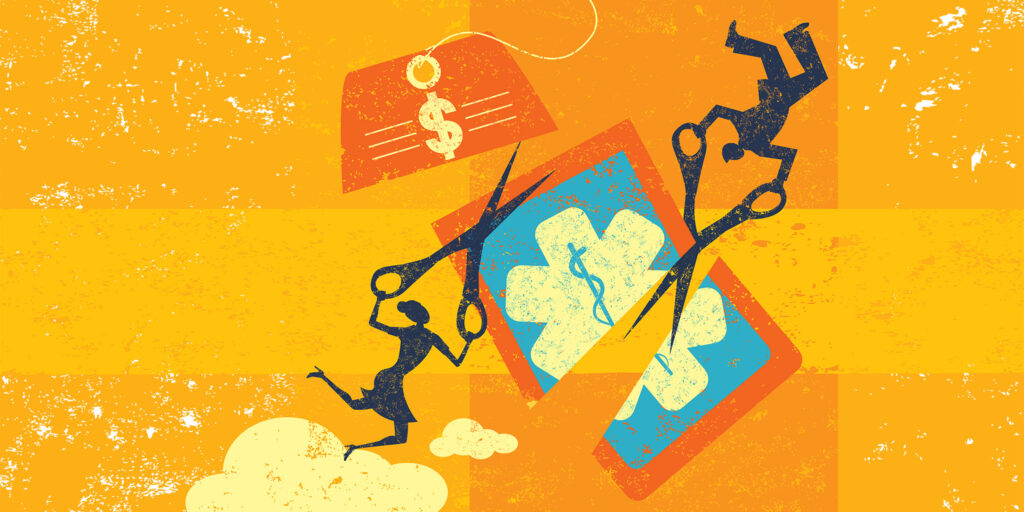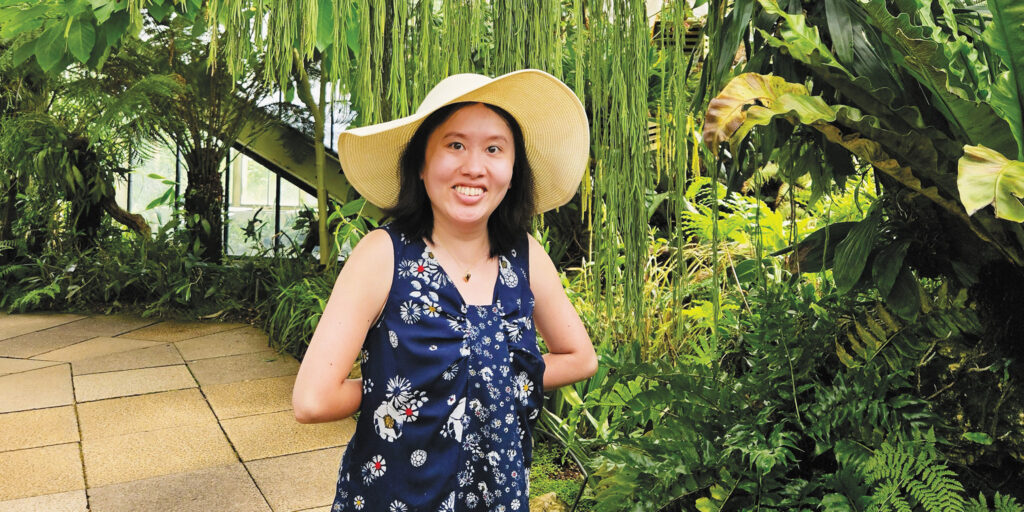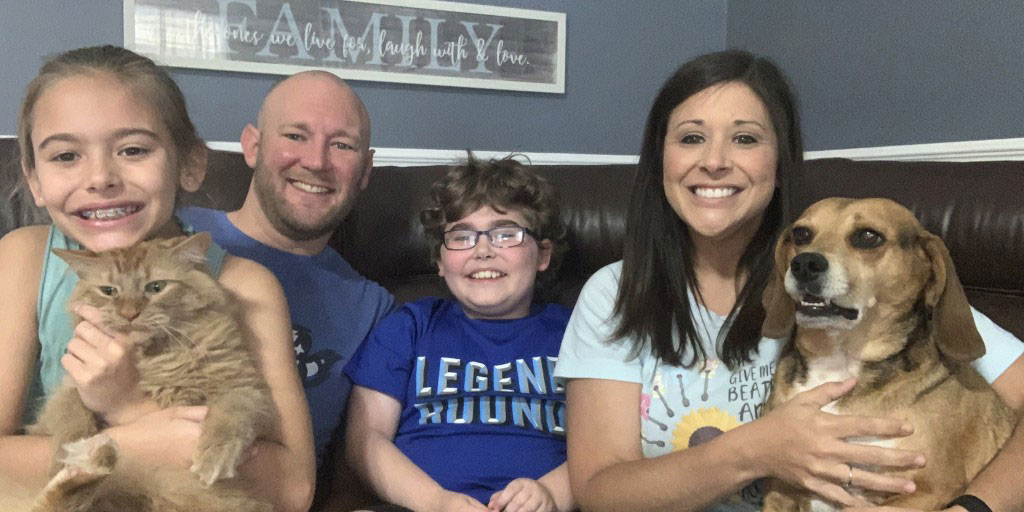
Hacking COVID: MDA Ambassador Edition, Part 2
By MDA Staff | Tuesday, June 16, 2020
In April, MDA fielded a survey to ask its community how COVID-19 was impacting their lives. We heard your responses — anxiety, questions, hope — and wanted to know more. In this six-part blog series, Hacking COVID, people from MDA’s community, all living with neuromuscular diseases, shared how they’ve altered their day-to-day lives, how they’ve “hacked” situations like getting groceries and receiving assistance, how they’ve maintained contact and safety in an uncertain time.
MDA encourages all families to follow the guidelines put forth by the U.S. Centers for Disease Control and Prevention. Access our latest news and resources on our COVID-19 resource page.
Today, our MDA National Ambassadors check in.
Jordan LyBrand is mom to 2020-2021 MDA National Ambassador Ethan, 10, who lives with Duchenne muscular dystrophy (DMD). The family resides in Decatur, Ala.
How has the threat of COVID-19 changed your day-to-day routine?
Our daily routine has come to a complete stop. We do not go anywhere. We order groceries to be delivered and food to-go or delivery.
How have you adapted to those changes? What tricks have you discovered to make things work?
Honestly, we have realized that some of the changes aren’t so bad. We have thoroughly enjoyed the time we get to spend together. We are anxious to get back to some type of normalcy, but I think we will take the time to slow down and appreciate the down time. I think the biggest thing we have done is just checking in on each other to see if everyone is good, or do we need to get out and go for a drive and sing loud, or if we just want to hang out around the house. Luckily our kids are homebodies and haven’t been too disappointed by having to stay in!
What has been the hardest change?
The hardest change is seeing my kids not be able to see their friends, and us [parents not being able to see ours]. We have close friends who we have not seen in a couple of months, and that has been hard. On the other hand, making sure everyone stays safe and staying in hasn’t been hard at all because we know it is necessary and everyone in our family understands that.
How have you been coping?
We have been working a lot from home, going on walks, swimming, playing basketball, reading, and playing games together … and maybe a little Netflix! We talk to friends on Marco Polo or FaceTime so we can see faces, and that is always good for the soul!
What new routines might you keep in place beyond the COVID era?
More family dinners at home! We are usually always on the go and hardly have down time, so being able to cook at home and enjoy each other is one thing we will keep in place. Sounds simple, but in the midst of life’s chaos, it sometimes becomes a difficult task and we eat on the run!
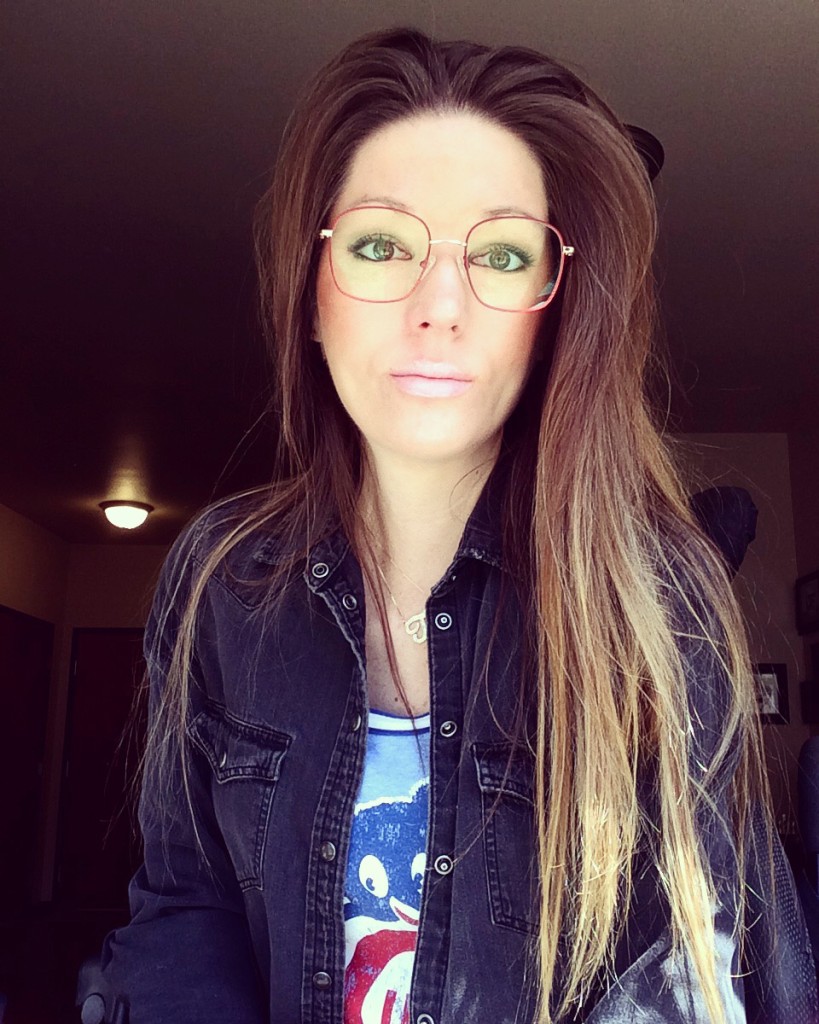
Tana Zwart
2019-2020 MDA National Ambassador Tana Zwart, 35, lives with facioscapulohumeral muscular dystrophy (FSHD). She resides with her cat, Ülli, in Sioux Falls, SD.
How has the threat of COVID-19 changed your day-to-day routine?
Generally speaking, it hasn’t been a huge upheaval in my routine. I already work from home, and only receive home health services a handful of hours a week. My in-person meetings for work and committees that I’m on have all transitioned to virtual. That has probably the greatest change in my day-to-day.
At the beginning of this all, one of the things I did question was how feasible living independently was during a time of shelter-in-place, and I wondered if it might be more logical to go back to Minnesota to my parents’ for a few weeks, mainly just to ensure I’d have the in-home help I needed when I needed it.
There were so many unknowns at the beginning, and there still are, but I feel like the shock and confusion has worn off, and ingenuity and resourcefulness has set in. I’m fortunate to have a lot of friends and family who are willing to step in whenever I need something, whether it’s to pick up my grocery order or whatever it may be.
How have you adapted to those changes? What tricks have you discovered to make things work?
I’ve ordered my groceries for pick-up long before the pandemic, but when the pandemic hit everybody was doing the same thing, and stores were/are selling out of things. You really have to be proactive and plan ahead more than usual to make sure you have what you need.
What has been the hardest change?
The freedom to roam, and physically interact. When everything started, I was coming out of the winter months where I don’t venture out much, only to be holed up longer by a pandemic. By March, I am so ready to be out and about again and connect with others, without the obstacle of snow and cold. It’s made so many aspects of my year feel stalled out and deactivated (which is how so many are feeling right now).
How have you been coping?
I’ve been coping pretty well, actually. I have dealt with many obstacles and hard seasons throughout my life and have developed a well-honed process for adapting and adjusting to change. You really just take one day at a time, take action where you can, let go of the things that are out of your control, and stay connected to others (whatever that may look like). None of us are meant to do this life alone.
What new routines might you keep in place beyond the COVID era?
It’s not necessarily a routine for myself, personally, but I’m truly hoping more businesses realize how completely feasible it is to hire individuals with the option to work-from-home after this is all said and done. It would open up so many more opportunities for individuals with disabilities, and make finding employment more inclusive and less of a frustration.
Disclaimer: No content on this site should ever be used as a substitute for direct medical advice from your doctor or other qualified clinician.


